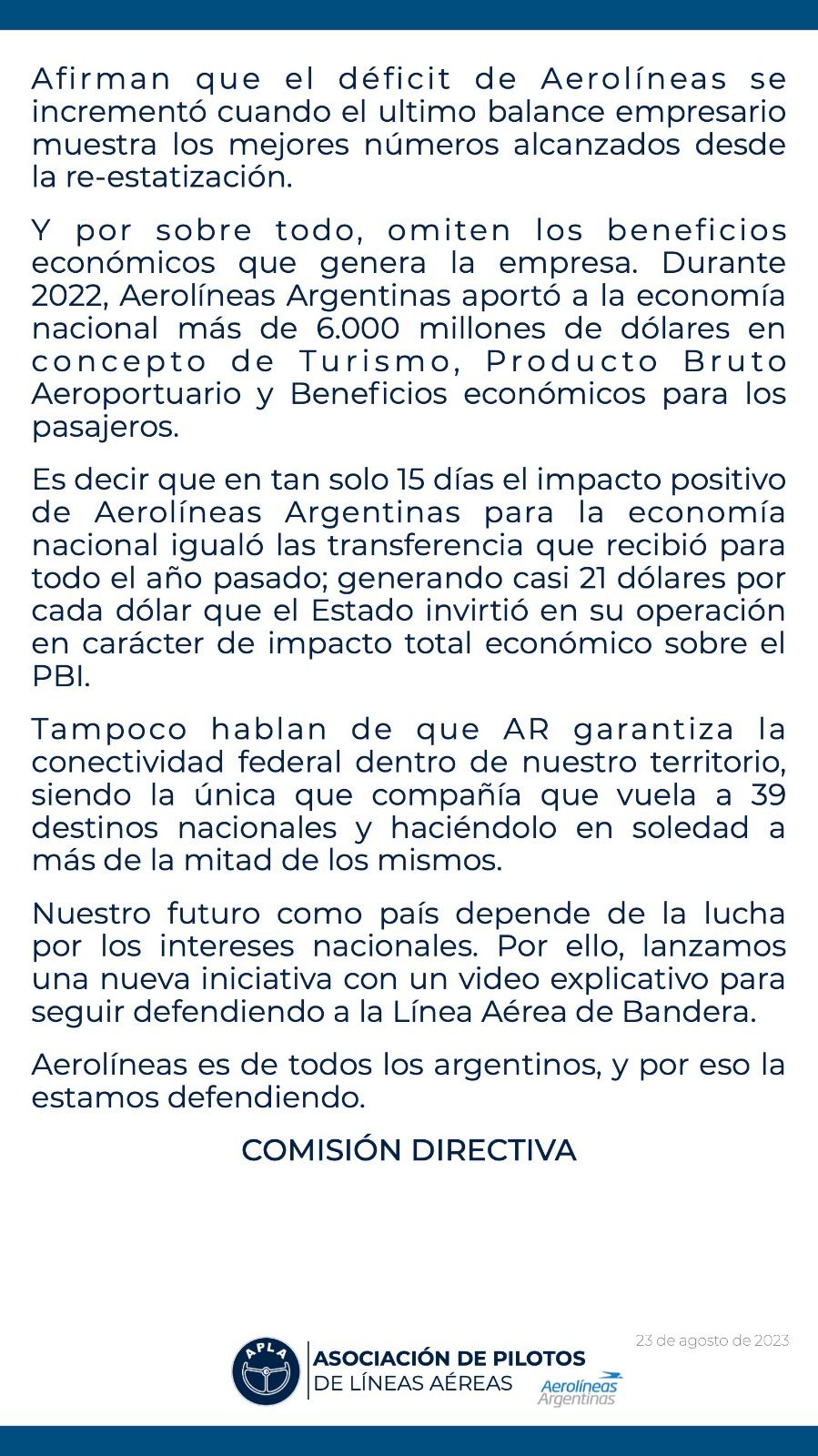The future trajectory of Aerolíneas Argentinas, Argentina’s national airline, has found itself amidst heated political controversies. A major instigator was Máximo Kirchner, a national representative for Buenos Aires’ province and son of former presidents Néstor Kirchner and Cristina Fernández de Kirchner (CFK).
His legislative proposal implies that any future sale or transfer of shares of Aerolíneas Argentinas should secure the approval of two-thirds of both chambers of Congress.
The main -for now- opposition party released a statement in which they express the rejection to Kirchner’s proposed bill, deeming it as inconstitutional. «It is not possible within the Argentine legal system to modify or extend by legal means the aggravated majorities expressly stipulated by the National Constitution.»
JXC RECHAZÓ EL PROYECTO DE MÁXIMO KIRCHNER SOBRE AEROLÍNEAS ARGENTINAS
Como es de público conocimiento, el kirchnerismo transformó a la aerolínea de bandera en una de sus principales cajas y ahora que el ciclo político del oficialismo está terminado busca garantizarse una guarida pic.twitter.com/S7smTjTM6L— Mario Raúl Negri (@marioraulnegri) August 22, 2023
«Juntos por el Cambio rejected today in a committee plenary the bill presented by Máximo Kirchner aiming to obstruct, by aggravating legislative majorities, any future attempt to sell shares of Aerolíneas Argentinas», says the opposition party in a statement.
«As is publicly known, Kirchnerism transformed the flag carrier airline into one of its main sources of funds, and now that the political cycle of the ruling party is over, it seeks to ensure a hideout in which to take refuge,» they affirm.
Juntos por el Cambio fondly recalls their term (2015-2019), advocating their endeavors in welcoming new carriers to the Argentine market: «During the Cambiemos government, between 2015 and 2019, an open skies policy was implemented that allowed competition between companies and thousands of Argentines to fly for the first time.»
The party identifies those measures as an «Open Skies» policy, but it truly was a calculated move to augment competition within the aviation sector that went nowhere near a true Open Skies paradigm.
They credit these strides with bolstering national fiscal health, in stark contrast to the current administration.
Pilot’s union defense: protecting a national emblem
Despite -or in direct response to- the criticisms from Juntos por el Cambio, the Airline Pilots Association (Asociación de Pilotos de Líneas Aéreas – APLA), has ardently defended the airline. They emphasize its paramount role in Argentina’s economy, pointing to a staggering contribution of over $6 billion in 2022. APLA has also championed the airline’s role in bridging 39 national destinations and rebuked the opposition for undermining this pivotal national entity.


«In the face of a situation where various sectors consistently attack Aerolíneas Argentinas with the ultimate goal of shutting down the company, APLA is spearheading a campaign in defense of the National Flag Carrier», says APLA. «Far from prioritizing the public interest, these Members of Parliament haven’t even been willing to address something as vital for the country as the future of the National Flag Carrier», they continue.
«During 2022, Aerolíneas Argentinas contributed more than 6 billion dollars to the national economy, accounting for Tourism, Gross Airport Product, and economic benefits for passengers. Our country’s future depends on fighting for national interests», they add.
«That’s why we’ve launched a new initiative with an explanatory video to continue defending the National Flag Carrier. Aerolíneas belongs to all Argentinians, and that’s why we’re defending it.»
The current debate on Kirchner’s bill, labelled as unconstitutional by the opposition, is vehemently defended by APLA and its supporters. They perceive this legislative proposal as a protective shield for the airline’s forthcoming trajectory.
With Aerolíneas Argentinas sailing through these turbulent political winds, the Argentine populace eagerly awaits clarity from the Congress. Amidst the political storm, the airline’s role as a significant economic contributor and national emblem remains undebatable.







